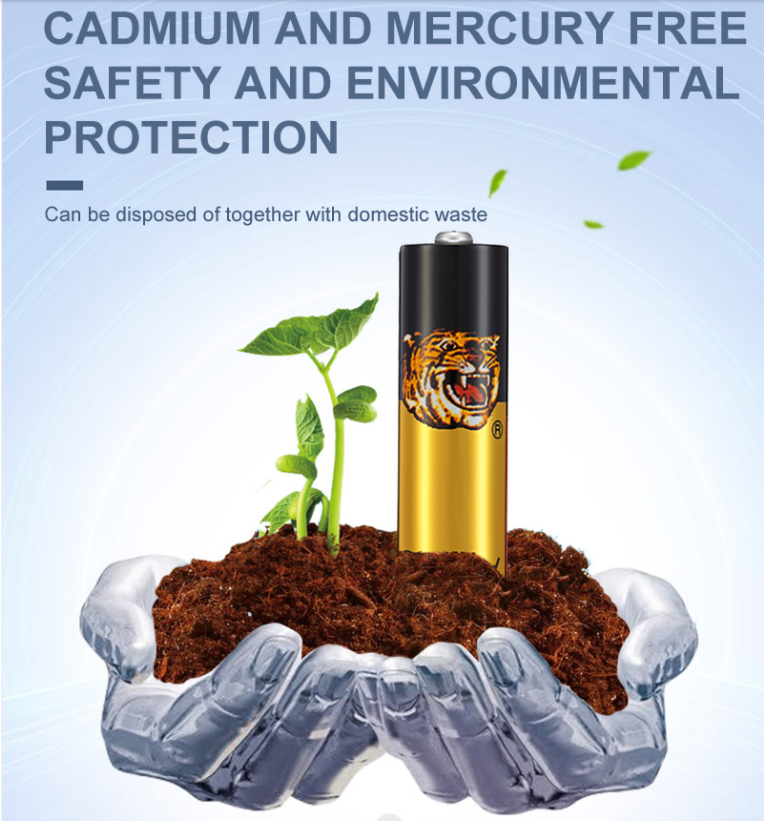Alkaline Batteries: Mercury Free and Environmentally Friendly
Dry batteries are small, but they are widely used in our daily life. What should we do with dry batteries after they are used up? In the past, it was always said that discarding batteries would cause irreversible environmental pollution of soil and water. Since waste batteries contain mercury, they have direct effects on soil, water and human health. So we've been urging people not to litter waste batteries, but to recycle them properly.
Dry batteries are divided into two types: mercury-free batteries and mercury-containing batteries. Improper handling of mercury-containing batteries would cause mercury pollution. However, with the improvement of battery production technology, the disposable alkaline batteries currently on the market are mercury-free and environmentally friendly, and can be discarded together with household waste. The mercury-free alkaline battery is improved on the basis of the alkaline zinc-manganese battery. The Tiger Head alkaline battery has advanced technology, does not contain mercury, and has sufficient power for long-term use.

Mercury-containing batteries generally are carbon batteries, containing a certain amount of mercury. Improper handling will cause mercury pollution. According to data, AA or AAA mercury batteries buried in the soil will pollute about 1 cubic meter of soil, so please do not discard them at will. Due to the low price, mercury-containing batteries still occupy a certain market share. Mercury content and unstable performance are also major disadvantages of mercury-containing batteries.
Our country imposes a 4% punitive consumption tax on mercury-containing batteries, so mercury-free alkaline batteries have become a major trend in the development of my country's dry battery industry. Although the recycling of disposable batteries in our country has not been fully popularized, we can still choose high-performance alkaline mercury-free batteries in our daily life. Even if it is not recycled, it will not cause pollution, and we can make our own contribution to environmental protection.
Why Are Dry Batteries not Sorted as Hazardous Waste?






